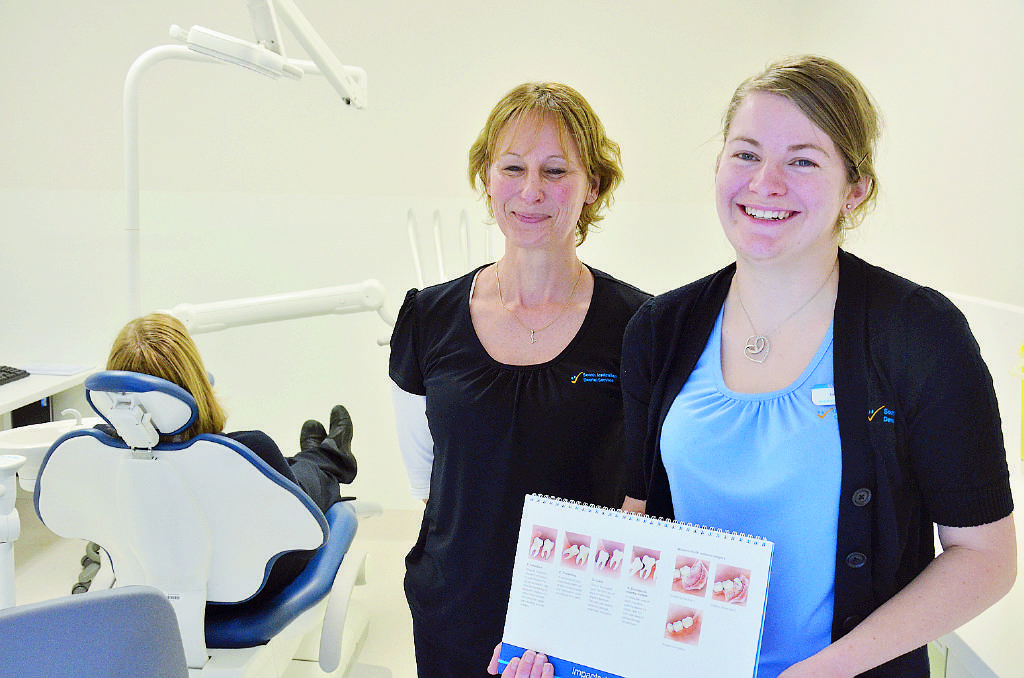<h3 style="text-align: justify;"><strong>Teeth Grinding: Causes, Symptoms, Risks, and treatments </strong></h3>
<p style="text-align: justify;">Teeth grinding or bruxism is quite common. Though occasional teeth grinding doesn’t cause any harm, regular teeth grinding can damage teeth and can pose other oral health problems. If you are someone who suffer from this particular problem, find out useful information about teeth grinding.</p>
<p style="text-align: justify;"><img class="aligncenter wp-image-952 size-full" src="http://billthelibrarian.com/wp-content/uploads/2015/06/11111.jpg" alt="Dental Services Directory Australia " width="350" height="350" /></p>
<h3 style="text-align: justify;"><strong>What are the Signs and Symptoms of Bruxism? </strong></h3>
<p style="text-align: justify;">To find out whether you or someone whom you are concerned about has Bruxism, you must look out for the following signs and symptoms of Bruxism</p>
<ul>
<li>Teeth clenching that is loud enough</li>
<li>Flattened, chipped, fractured, or loose teeth</li>
<li>Worn out teeth enamel</li>
<li>Increased tooth sensitivity</li>
<li>Jaw pain or soreness</li>
<li>Tired or tight jaw muscles</li>
<li>Pain that feels like earache</li>
<li>Dull headache originating in the temples</li>
<li>Indentations on the tongue</li>
<li>Damage from chewing on the inside of the teeth</li>
</ul>
<h3 style="text-align: justify;"><strong>What are the Common Causes of Teeth Grinding? </strong></h3>
<p style="text-align: justify;">The exact cause of teeth grinding is not known but dentists believe that there can be several physical and psychological causes of teeth grinding, such as</p>
<ul>
<li>Anxiety, stress, frustration, anger, and tension</li>
<li>Abnormal alignment of upper and lower teeth</li>
<li>Sleep apnea</li>
<li>Stomach acid reflux into the oesophagus</li>
<li>Side effect of taking certain anti-depressants</li>
<li>Response to pain from earache or teething</li>
<li>Complications due to Parkinson’s disease or Huntington’s disease</li>
</ul>
<h3 style="text-align: justify;"><strong>Who can Suffer from Teeth Grinding? </strong></h3>
<p style="text-align: justify;">Although anyone can face teeth grinding problem, certain factors increase the risk of Bruxism are</p>
<p style="text-align: justify;">Increased stress, anger, and frustration can increase your risk of teeth grinding</p>
<p style="text-align: justify;">Bruxism is common in young children. It usually goes away by the time children reach teenage.</p>
<p style="text-align: justify;">Certain personality traits like aggressive behaviour, competitive or hyperactive can also increase your risk of Bruxism.</p>
<p style="text-align: justify;">Smoking, tobacco, drinking caffeinated beverages, and taking certain drugs like methamphetamine can also increase your risk of Bruxism.</p>
<h3 style="text-align: justify;"><strong>When should One See a Dentist? </strong></h3>
<p style="text-align: justify;">It is advisable to see your dentist if your teeth have become worn, damaged, or sensitive, if you experience pain in your jaw, face, or ear, if you make grinding noise while sleeping, and if you have a locked jaw that doesn’t open or close completely.</p>
<p style="text-align: justify;">In most cases, Bruxism doesn’t pose any risk. But severe teeth grinding can cause damage to your teeth, or crowns. It can result in headaches and facial pain and cause TMJ- a disorder of temporomandibular joints.</p>
<h3 style="text-align: justify;"><strong>How is Teeth Grinding Treated? </strong></h3>
<p style="text-align: justify;">Teeth grinding can be treated through therapies, medications, and through certain lifestyle changes. Stress management is found to be highly effective in treating Bruxism. Certain muscle relaxants also help improve Bruxism. By practising good sleep habits, avoiding stimulating substances in the evening, taking warm bath, exercising, and listening to music you can overcome this habit.</p>
<p style="text-align: justify;">It is advisable to visit an experienced dentist. You can check out <strong>dental services directory in Australia to find reliable dental treatment</strong> and services for Bruxism.</p>

Dental Services Directory Australia
